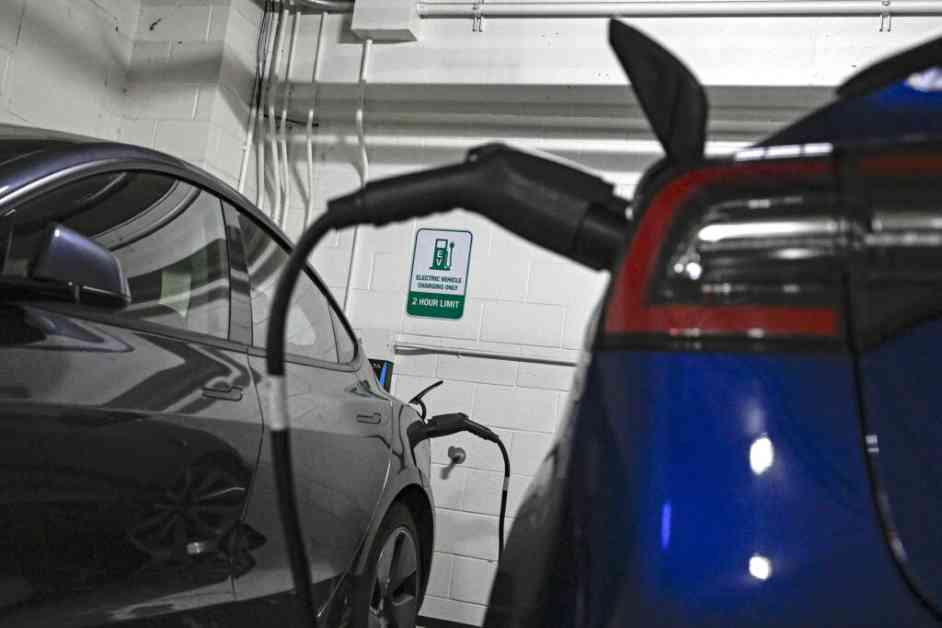The Trump administration has recently issued a directive to dismantle federal electric vehicle (EV) charging stations, signaling a shift away from clean energy and EV infrastructure. Inside Climate News obtained an email from a federal worker outlining the closure of these charging stations by the U.S. General Services Administration (GSA), a crucial body overseeing government buildings, procurement, and technology.
The email revealed that the GSA has been instructed to deactivate all government-owned charging stations, deeming them as non-essential. This decision will render the charging stations inoperable, cutting off access to both government and private vehicles. While the exact extent of this shutdown remains uncertain, indications suggest a widespread impact across various federal facilities.
The removal of these charging stations represents a significant setback for environmental initiatives, particularly in light of the GSA’s goal to transition to zero-emission fleet vehicles by 2024-2025. According to a 2022 Government Accountability Office report, the federal government would require approximately 100,000 charging ports to support the widespread adoption of EVs, underscoring the critical role of these charging stations in promoting clean energy practices.
Implications of the Dismantling
The repercussions of dismantling federal EV charging stations extend beyond mere inconvenience, as these facilities play a pivotal role in supporting EV adoption and reducing greenhouse gas emissions. More than 800 federal buildings across the country, including national laboratories, Veterans Affairs facilities, NASA centers, and military bases, host electric vehicle chargers, with over 3,300 federally managed ports available nationwide. These charging stations serve not only government vehicles but also employees and the general public, contributing to the broader accessibility of EV infrastructure.
A 2017 study commissioned by the U.S. Department of Energy Vehicle Technologies Office highlighted the positive impact of workplace charging stations on EV ownership rates. Employees with access to workplace charging were found to be six times more likely to own an electric vehicle, emphasizing the role of convenient charging infrastructure in promoting sustainable transportation practices.
Political Context and Industry Response
The decision to remove federal EV charging stations comes amidst broader policy shifts initiated by the Trump administration, which has rolled back previous executive orders aimed at climate change mitigation and clean energy promotion. President Trump’s recent actions, including freezing funding for public charging stations, have sparked legal debates over the constitutional authority to defund such projects.
While federal support for EVs has been championed by bipartisan legislation like the FAST Act, the current administration’s stance on EV infrastructure remains contentious. Notably, Tesla CEO Elon Musk, a prominent figure in the electric vehicle industry, is collaborating with the Trump administration on government efficiency initiatives, underscoring the complex interplay between policy decisions and industry dynamics.
The GSA’s decision to dismantle charging stations contradicts the trajectory set by President Joe Biden, who accelerated the transition to zero-emission vehicles and infrastructure through executive orders and federal mandates. The Biden administration’s commitment to electrifying the federal fleet by 2035 and promoting EV adoption stands in stark contrast to the recent dismantling of charging stations, reflecting divergent approaches to clean energy and sustainability.
As the debate over EV infrastructure and climate action continues to unfold, the fate of federal charging stations serves as a poignant reminder of the interconnected challenges facing environmental policy and clean energy initiatives. The removal of these charging facilities raises critical questions about the future of EV adoption, greenhouse gas reduction, and the broader implications of shifting political landscapes on sustainable transportation.
The Trump administration’s directive to disconnect federal EV charging stations marks a significant turning point in the ongoing dialogue surrounding clean energy, climate action, and environmental policy. As stakeholders across government, industry, and advocacy groups grapple with the implications of this decision, the fate of EV infrastructure and sustainability efforts hangs in the balance.














